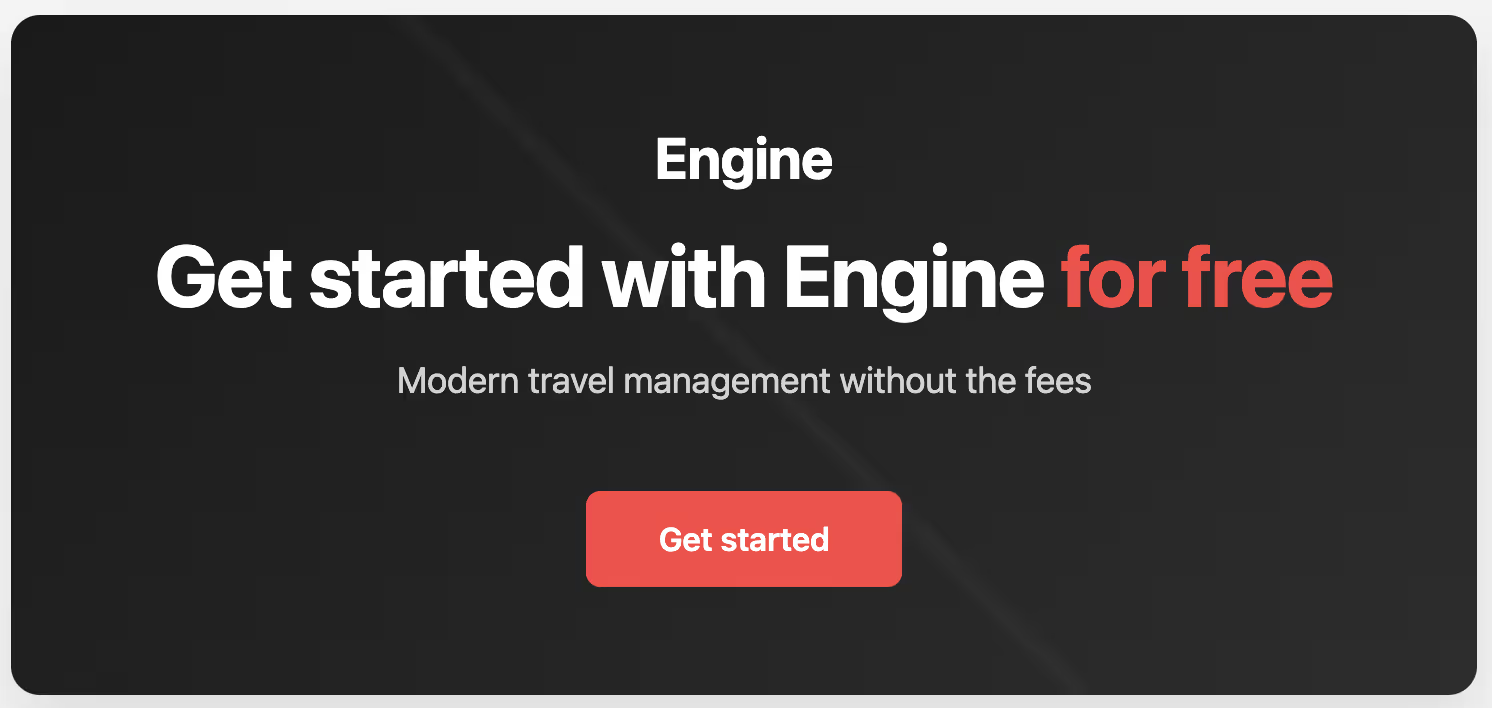Business Trip Planning: Step-by-Step Roadmap for Construction and Manufacturing Teams
.jpg)
It's Monday morning. Your phone won't stop ringing. Your concrete crew is stranded in Phoenix because the hotel "never received" the authorization form you faxed last week.
The electricians in Montana can't check in without a physical credit card, but your corporate cards don't work with Booking.com. Meanwhile, your boss wants to know why the Morrison project is $3,000 over budget when you're still hunting down receipts from contractors who paid cash.
You've spent three hours this morning on hotel problems instead of managing actual work. Your inbox has 12 new booking confirmations that need to be coded to different job numbers.
The Denver crew extended their stay but forgot to tell anyone, so now you're explaining surprise charges to finance.
This is the daily reality for operations managers drowning in crew travel chaos. You didn't sign up to be a travel agent, but somehow you're spending more time chasing hotel folios than coordinating projects.
There's a better way. Here's the roadmap that stops the chaos.
Build Travel Policies People Follow
Your travel policy doesn't work if your crews ignore it. Good policies answer the questions your teams ask, not the ones consultants think they should ask.
Questions Your Policy Must Answer
- Who books what? (operations managers, assistants, or you)
- How much can people spend before they need approval?
- What hotels work? (location near job sites, price range, basics like WiFi)
- Which flights can they book? (economy class, direct vs. connecting)
- How do expenses get paid? (corporate card, reimbursement, direct billing)
For operations managers: When your concrete crew needs 12 rooms near the Morrison site and doesn't know the approval process, everything stops. Clear rules keep projects moving.
For finance teams: Unclear policies cost money. One vague rule about room upgrades can blow your quarterly budget when everyone interprets it differently.
For project managers: You need to know the rules before you book, not after accounting calls asking why you spent $300/night in Cleveland.
The best platforms enforce rules during booking, not after.
Set Up Payment Systems That Handle Real Work
Once your policy foundation is solid, you need payment systems that support those rules and work with today's prices.
Choose Your Payment Method
Corporate cards work best for: Regular travelers, long trips, cash flow control
Per diem works best for: Eliminating receipt collection, controlling food costs, simple expense tracking
Direct billing works best for: Group travel, eliminating authorization forms, unified invoicing
Use Mobile Payments
Your expense system needs to work on phones, not just computers. Adding corporate cards to mobile wallets allows travelers to make contactless payments, which are faster and lead to fewer card-related issues.
For finance managers: Month-end closing shouldn't require hunting down receipts from five different job sites. Good expense tools cut reporting time from over an hour to under three minutes.
Engine's Direct Bill eliminates credit card authorization forms entirely. Qualified companies get automatic credit extension, incidental coverage, and consolidated monthly billing.
Pick Booking Platforms Built for Project Work
With your financial controls in place, pick technology that supports your policies and payment methods. But fancy technology that doesn't work on Monday morning is useless. Here’s what really matters in a booking platform:
- Inventory access: Can you book what your team needs? Engine provides access to 750,000+ hotels, dozens of airlines, and 40+ car rental companies in one place
- Mobile functionality: You can book hotels on phones. Your platform needs full mobile features, not a stripped-down app
- Policy enforcement: Prevent problems instead of fixing them. Automated compliance checking stops bad bookings before they happen
- System integration: Connect with your calendar, expense tools, and accounting systems. Data shouldn't require manual entry
- For project managers: Test your company's platform on mobile before you're stuck in an airport trying to change flights
Plan Trips That Don't Fall Apart
Now that you have the right technology platform, use it well. Good planning eliminates problems before they start.
Book at the Right Time
- International flights: Book 2-8 weeks ahead for best rates
- Domestic flights: Book 1-4 weeks ahead for savings
- Hotels: Balance early booking discounts with flexibility needs
- Ground transportation: Book with primary travel for better rates
For operations managers: Even experienced travelers book wrong dates sometimes. Double-check meeting schedules before booking anything. A quick email prevents costly rebookings.
Pick Hotels That Support Your Operations
Good planning leads directly to better hotel choices. Hotel location affects productivity more than price affects budgets. Choose wrong and your team wastes time and money every day.
A hotel 45 minutes from the job site costs more in daily transport and lost productivity than a nearby option that's $20/night higher.
Try these money-saving hacks to save even more:
- Free breakfast: Saves $15-25 per person daily. Gets crews fed before early meetings
- Reliable WiFi: Travelers need to upload presentations and communicate with home offices
- Business center access: For printing contracts, proposals, and presentation materials
- Extended stay features: Kitchenettes and laundry for multi-week projects
Stack Your Rewards and Cut Costs
Picking the right hotels helps you get the most out of every booking. Stick with rewards programs. Random booking wastes money.
- Use business cards offering 2-5x points on travel purchases for maximum earning potential
- Pick one hotel chain and stick with it for status benefits and room upgrades
- Book early for advance purchase discounts and better rate availability across hotel options
- Use negotiated rates for immediate savings on every booking your company makes
- Combine corporate discounts with loyalty benefits to maximize savings on each trip
- Access group booking discounts for team travel and multi-room project accommodations
- Track rewards earning alongside spending to fund future travel and provide budget relief
Protect Against Travel Problems
After you've got your savings figured out, you need backup plans. Projects get delayed. Weather hits. Equipment breaks. Plan for problems before they hit.
Get Insurance That Covers Real Problems
Your crew coverage needs to handle real situations:
- Medical emergencies: Health coverage when someone gets hurt on the road
- Trip cancellation: Coverage when projects get cancelled or delayed
- Equipment protection: Tools, laptops, and work gear coverage
- Emergency transport: Getting people home when serious problems hit
Insurance companies are picky about claims. "The job got postponed" usually doesn't qualify. Flexible booking handles normal project changes better than insurance claims.
For operations managers: Plan for projects that stretch. A three-day installation that becomes a two-week rebuild needs different hotel arrangements.
Set Up Support That Works
Insurance covers the big problems, while daily support handles everything else. Good support means preventing problems before they start.
Get Your Crew Ready
- Work documents (contracts, permits, ID)
- Tools and tech (laptops, chargers, work phones)
- Right clothes for the job and weather
- Company cards and expense tracking
For operations managers: Keep spare chargers, work clothes, and basic gear ready for when projects run long. If you're traveling every month, TSA PreCheck saves time at airports.
Track Where Your Money Went and Fix Problems
After your crew gets back, figure out what worked and what didn't. Skip this and you'll keep wasting money on the same problems.
Track hotel, food, and transport costs by project. When the Phoenix job goes over budget, you need to know if it was the $300/night hotels or the crew eating steak every night.
Track These Basics
- Which projects went over budget and why
- What booking problems keep happening
- Where you're saving money vs. where you're not
For finance managers: Show your boss the real numbers. "We saved $2,400 on the Morrison project using negotiated rates" beats "Our ROI analysis indicates positive cost optimization trends."
For operations managers: When the next project comes up in Denver, you'll know whether that $180/night hotel near the job site saves money compared to the $120 option that's 45 minutes away.
Handle Real Crew Travel Requirements
Every project is different. Your concrete crew in Phoenix needs different arrangements than your electricians in remote Montana. Consumer booking platforms can't handle this reality.
Handle Construction and Manufacturing Requirements
- Track costs by job: Your accounting team wants to know what the Morrison project cost, not what happened on your credit card last month
- House entire crews: You need 25 rooms for six weeks, not help booking a sales trip to Chicago
- Work in remote locations: Job sites aren't near airports and conference hotels. You need places that exist where the work happens
- Handle timeline chaos: Weather delays, permit problems, and equipment breakdowns change everything. Your booking platform needs to handle reality, not perfect project schedules
Meet Logistics Requirements
- Hotels along truck routes: Drivers need rest stops along I-80, not downtown convention centers
- DOT paperwork that works: Compliance documentation that satisfies regulations
- Last-minute changes: When delivery schedules shift, everything else shifts too
For operations managers: Your crews aren't business travelers. They're workers who need places to sleep near where the work happens. Use platforms built for project work, not consultant travel.
Engine handles crew travel through job code tracking, extended stay arrangements, group booking that works, and flexible policies for when projects inevitably change.
Put This System to Work
Good crew travel isn't complicated. It just requires the right approach. What works?
- Clear policies that answer real questions
- Payment systems that work with current prices
- Booking platforms built for crew travel
- Hotels near job sites, not conference centers
- No administrative nightmares
Ready to stop fighting with booking platforms? Engine handles the complexity so you can focus on getting projects done. Sign up for free and see how crew travel should work.

FAQs
How Can Operations Managers Get People to Follow Travel Policies?
Use platforms that stop bad bookings before they happen, not ones that complain about them later. Make your policies clear and easy to find. Engine's policy controls work during booking—if it violates policy, it doesn't show up as an option.
What's the Best Way to Control Crew Travel Costs Without Cutting Corners?
Use negotiated rates, flexible cancellation policies, and direct billing. Focus on location over price. A hotel near the job site saves more in transport costs and lost time than a cheaper option 45 minutes away.
How Should Construction and Manufacturing Companies Handle Group Bookings?
Use platforms with dedicated group booking that can handle 15+ room blocks, track costs by project, and adjust when timelines change. Engine's corporate travel management system is built specifically for these requirements.
What's the Difference between Business Travel Platforms and Consumer Booking Sites?
Consumer sites like Booking.com can't handle group bookings for entire crews or track costs by project. Business platforms provide policy enforcement, direct billing, and project-level expense tracking that construction and manufacturing teams need.
How Do You Handle Travel When Project Timelines Change?
Use platforms with flexible cancellation policies like Engine's FlexPro, which allows modifications until noon on check-in day. Build timeline buffers into your bookings, and work with hotels that understand project work often involves schedule changes.













.jpg)

.jpg)

.jpg)



.avif)
.avif)







.jpg)


.jpg)











